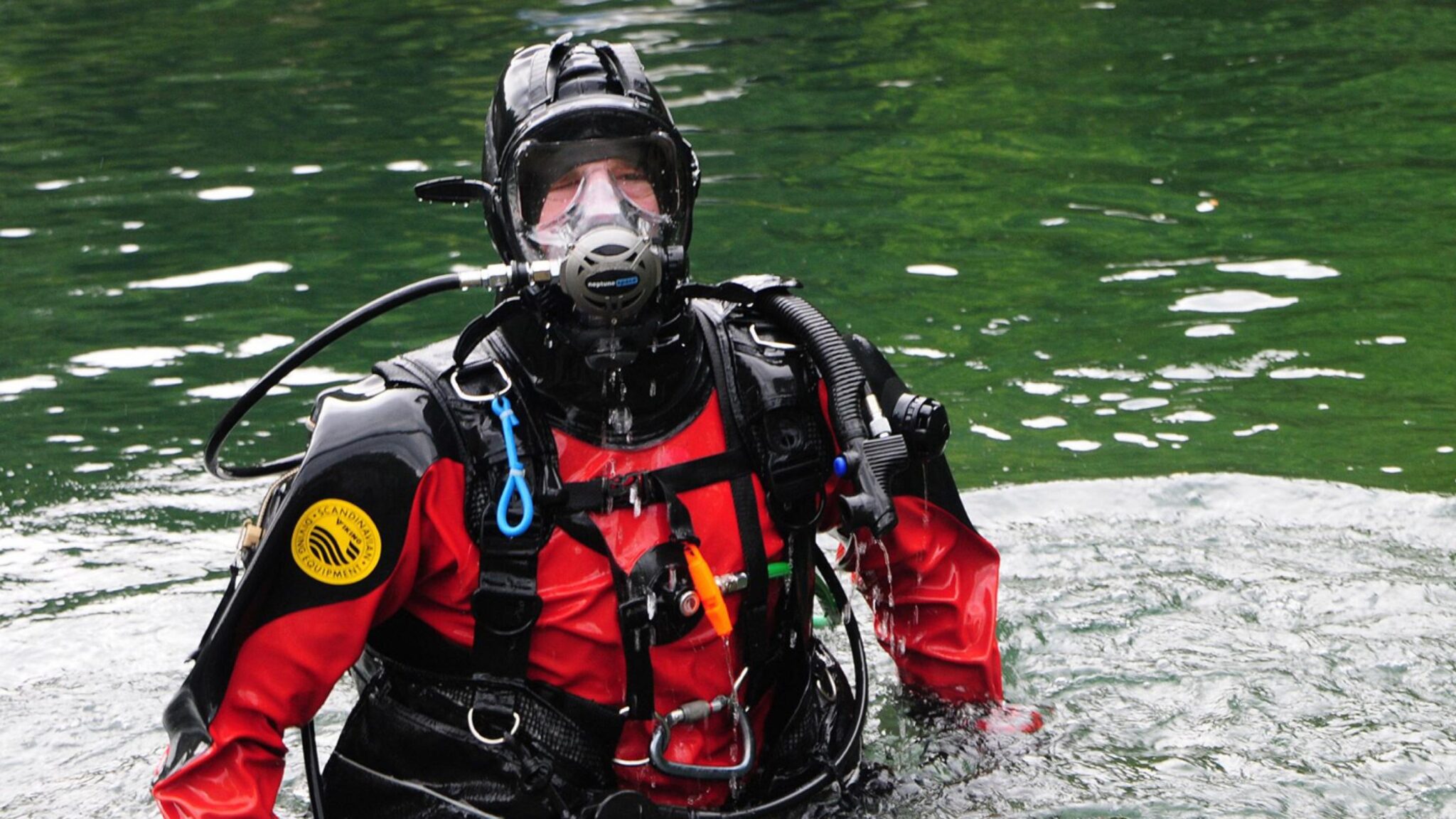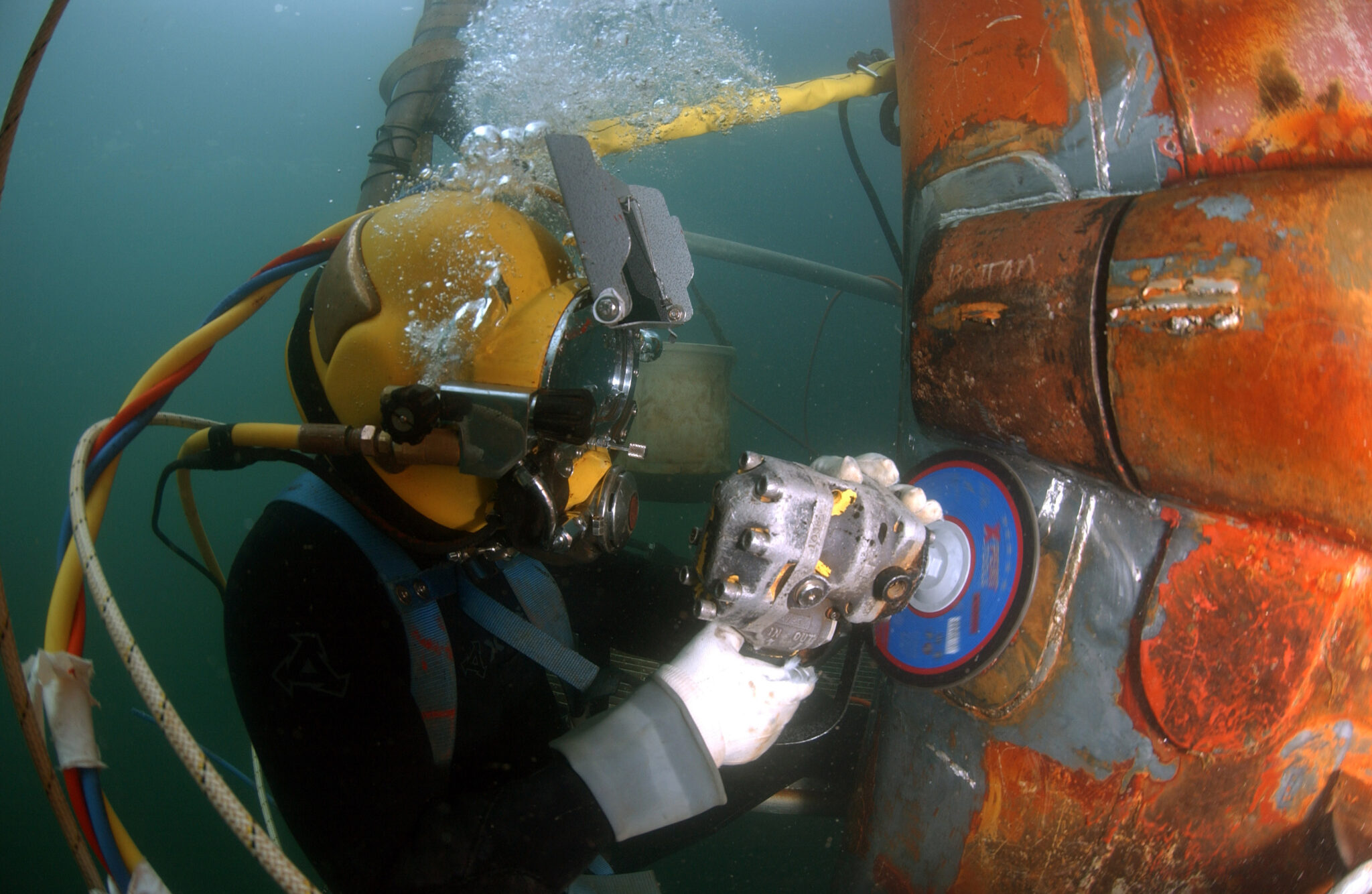Scuba diving jobs offer fantastic travel opportunities and a great way of life. They can also pay well. If living your underwater dreams and making money at the same time sounds like a dream to you, it’s time to become a professional diver. In this blog, we take a look at high paying jobs for scuba divers. Keep in mind that many of these careers will require training above and beyond recreational diving.
To become a military diver, you will need to sign up for the armed forces and undergo basic training first. Once admitted to the forces, you could be tasked with anything from underwater bomb defusing, demolition, or search and rescue missions. The pay for this one depends on the country and arm of the military you join.
Again, to become a police diver, you’ll need to go through initial police training first. Police divers are an essential part of the force for searching underwater crime scenes. This could involve looking for evidence that has been disposed of, weapons, and victims.
If you want to determine whether this type of diving is right for you before committing to a career, check out the PADI Public Safety Diver course.

On any oil rig, saturation divers play an important role – and that’s why this is one of the high paying jobs for scuba divers. You should expect to be on the rig for up to 28 days at a time, but then you’ll likely enjoy a month off before your next ‘mission’. While on the rig, divers work as teams and can be involved in rig repairs, installations, and general maintenance. For this job, you’ll need to undergo saturation diver training, and it helps to have additional skills, from welding through to mechanical engineering.
This one is not for the faint of heart, and you’ll need to be prepared to literally get your hands dirty! HAZMAT diving involves removing hazardous materials from bodies of water. It might take the form of diving in the sea, lakes, reservoirs or canals. As a HAZMAT diver, you may need to handle raw sewage, oil sludge, wet cement or, possibly, radioactive material.
As part of your HAZMAT diver training, you’ll learn about different types of sealed dry suits to ensure you’re always protected. You’ll most likely be diving in limited visibility and variable conditions, so you’ll also need the mental ability to remain calm when under pressure.
 Photo Credit: Andrew McKaskle via Wikimedia Commons
Photo Credit: Andrew McKaskle via Wikimedia Commons
Unlike oil rig divers that spend weeks at sea, inland divers are able to work a daily schedule and typically return home at the end of each day. Most inland divers are employed by government departments or the companies contracted by them. Work tasks can involve anything from salvage work, welding or inspecting bridges, piers, the hulls of ferries and other public vessels.
Unlike the majority of citizen scientists, the highest paid scientific divers will have a degree in marine biology. Scientific divers play an important role in marine research and much of the work involves taking samples, monitoring and compiling reports. Scientific divers (that are well paid) are commonly employed by large organizations involved in marine research.
 Image Credit: @verobeachmermaid / @mermaid.keke
Image Credit: @verobeachmermaid / @mermaid.keke
If you are interested in performing arts, major live performances and shows can be lucrative for underwater performers, including scuba divers, mermaids and freedivers. Expect to work evenings and be prepared to travel – these shows often go on the road!
Media companies are required to follow health and safety regulations when shooting footage underwater. Safety divers are needed to be on site to ensure the safety of the actors and film crew. This is one of the high paying scuba jobs; however work is not always consistent.
Whichever one of these options speaks to you, you’ll need to get started on becoming a professional diver. If you are already a PADI Rescue Diver with 40 dives, you are ready to enroll in a PADI Divemaster course.
Find out more about becoming a PADI Pro by clicking on the button below.
Share This
